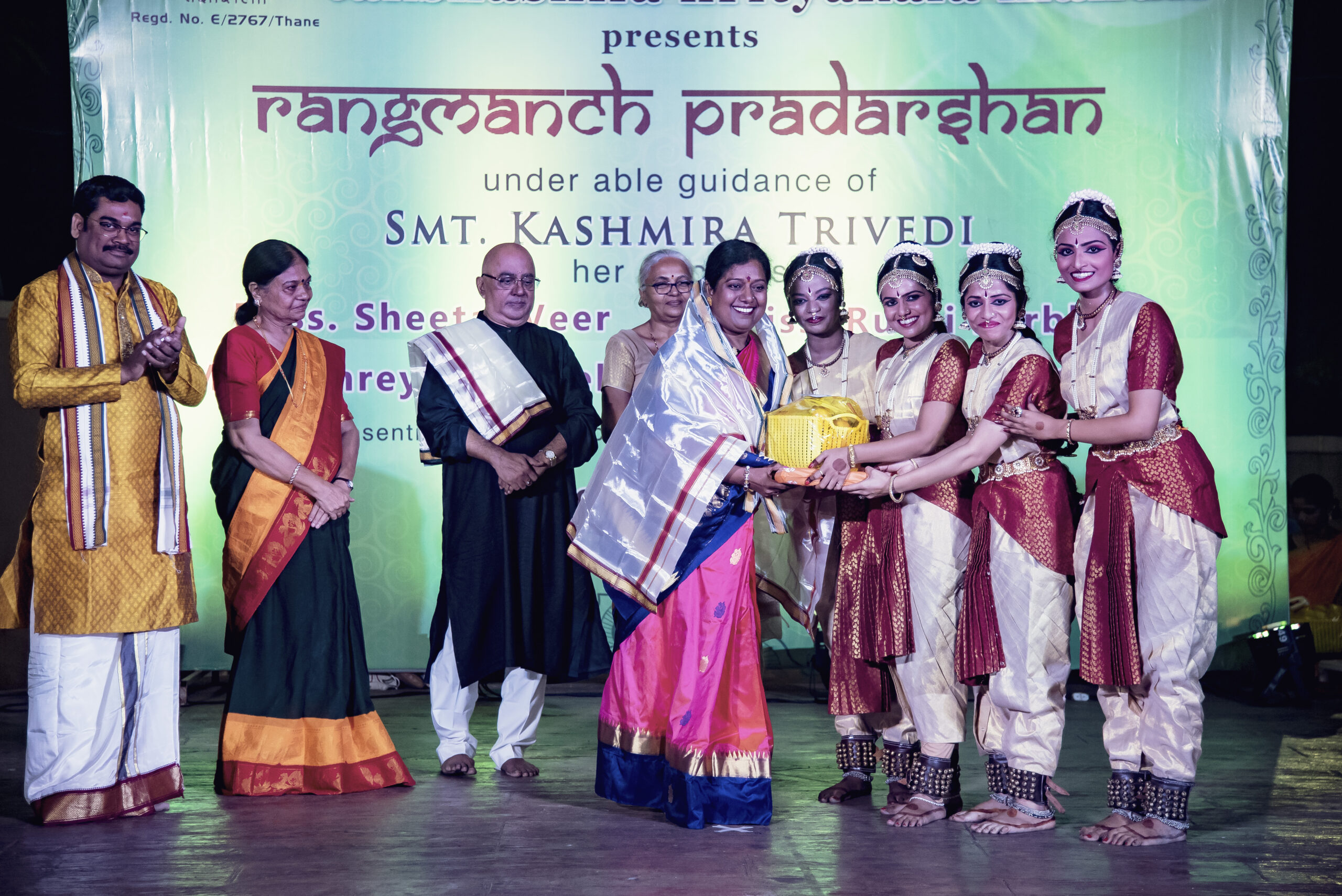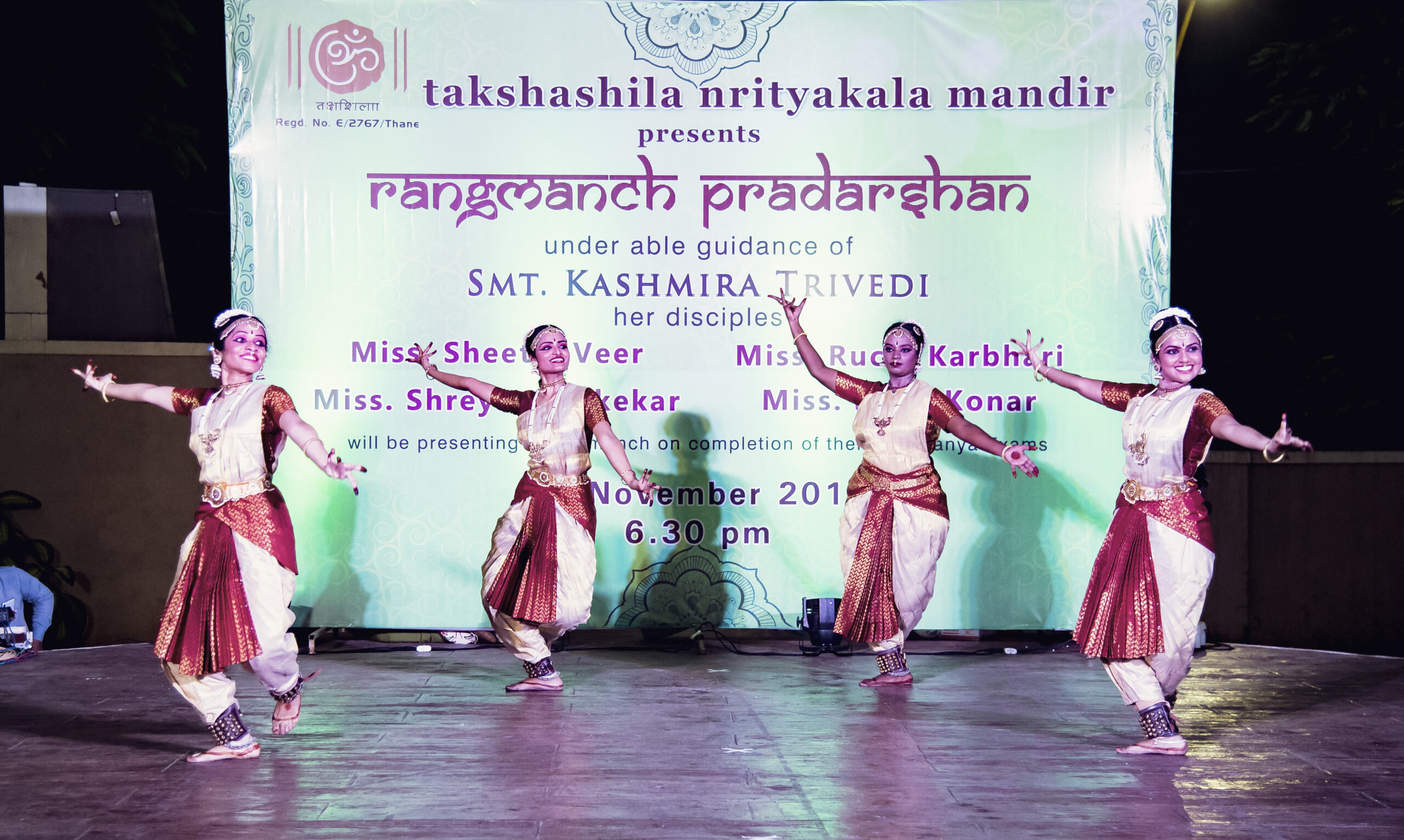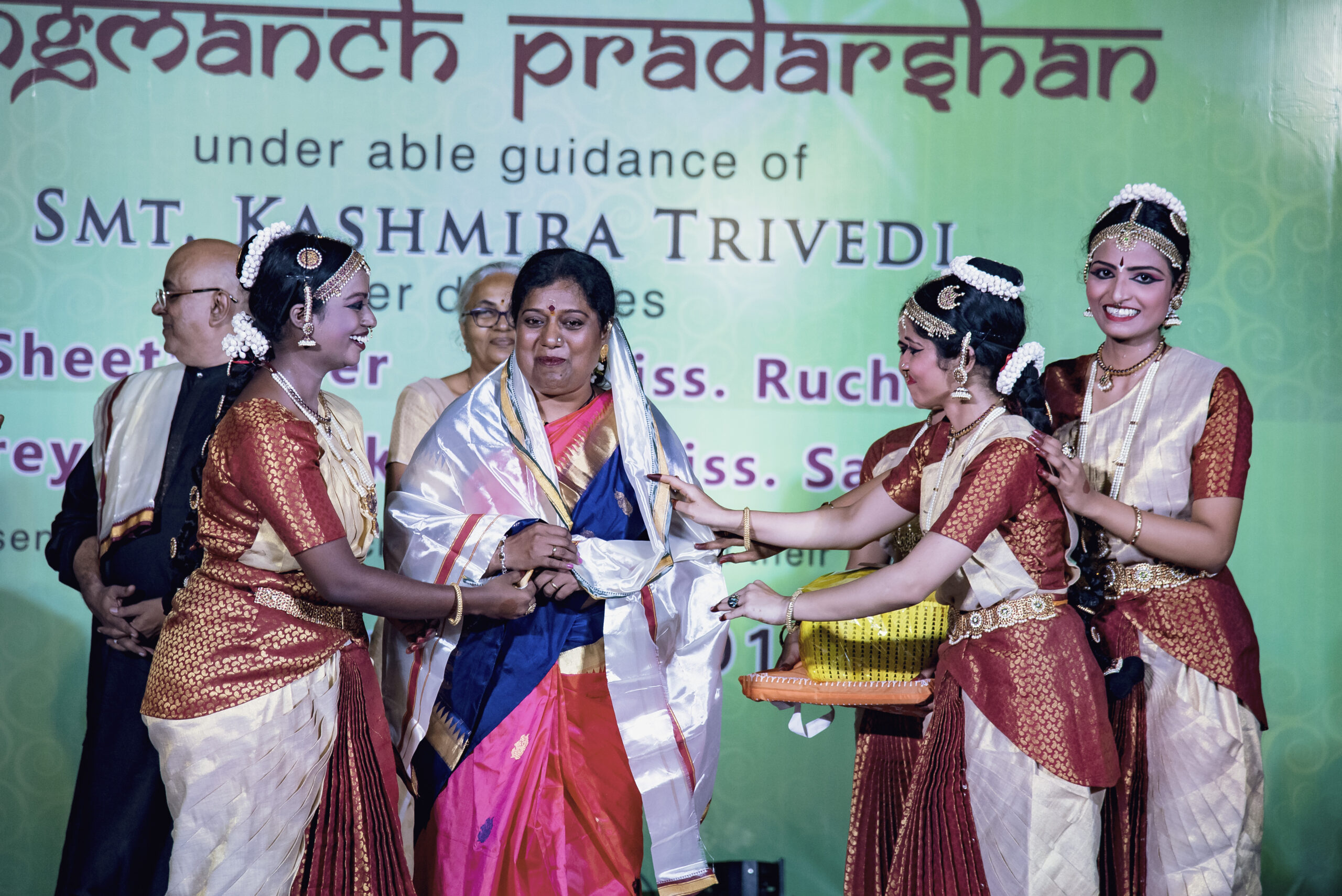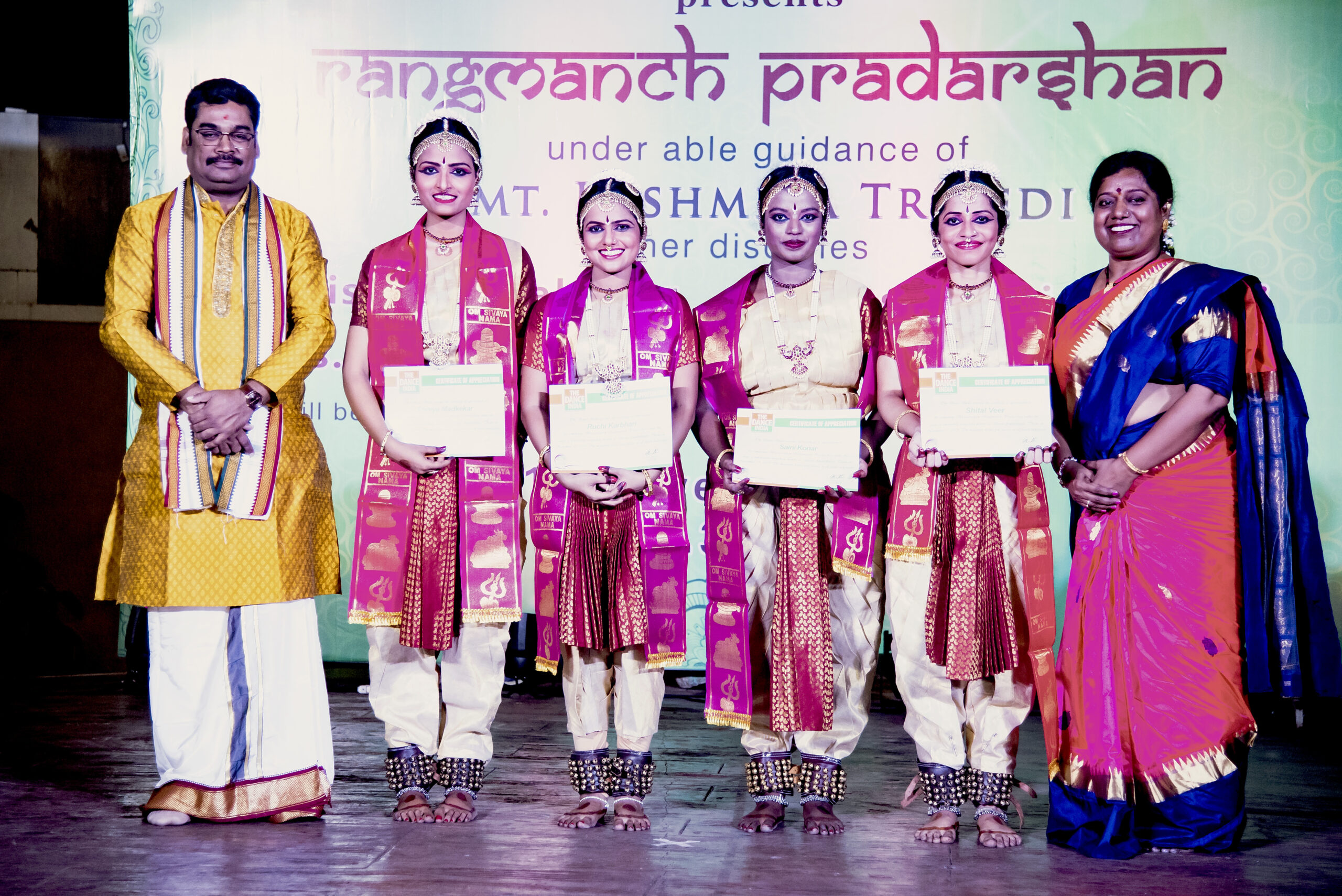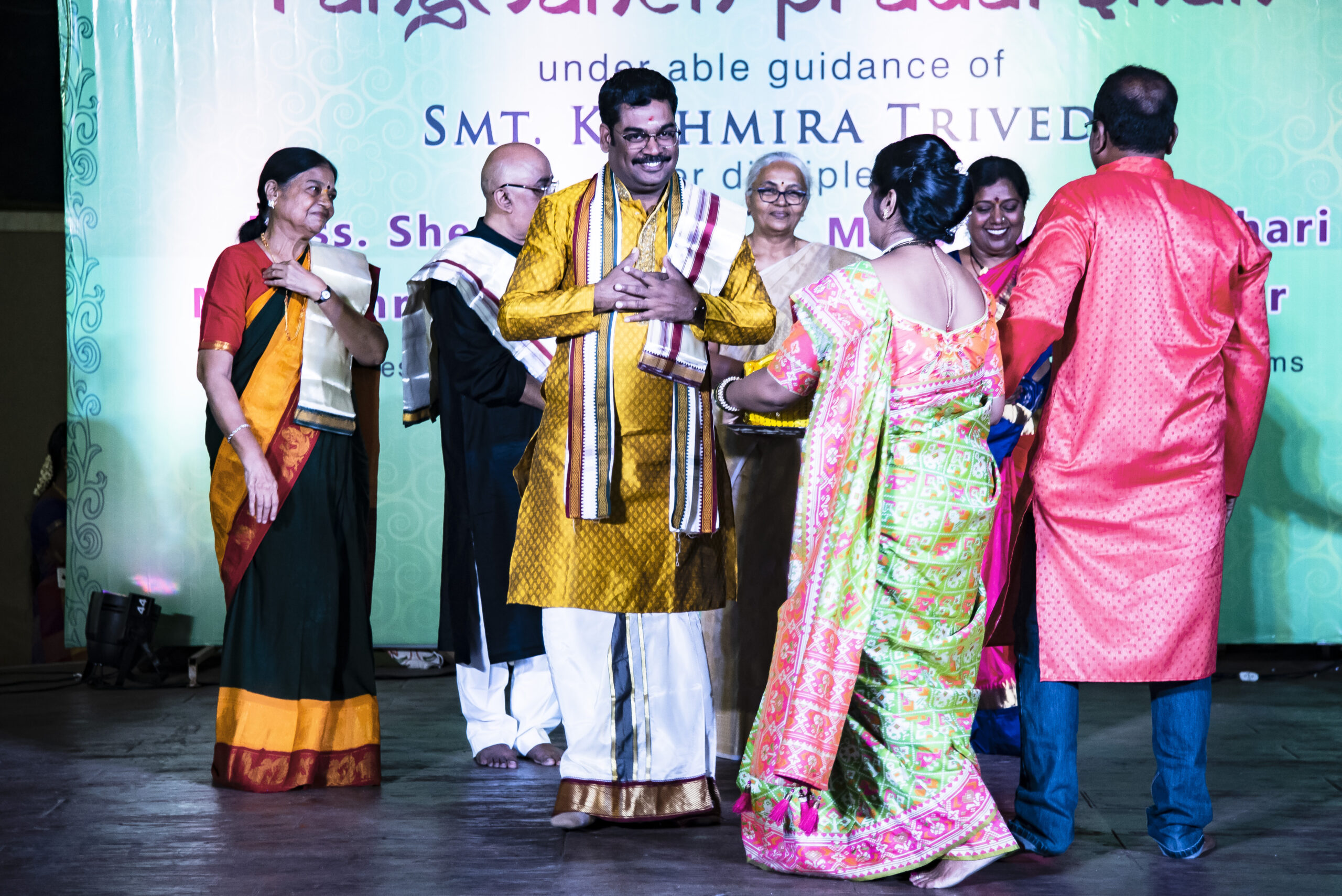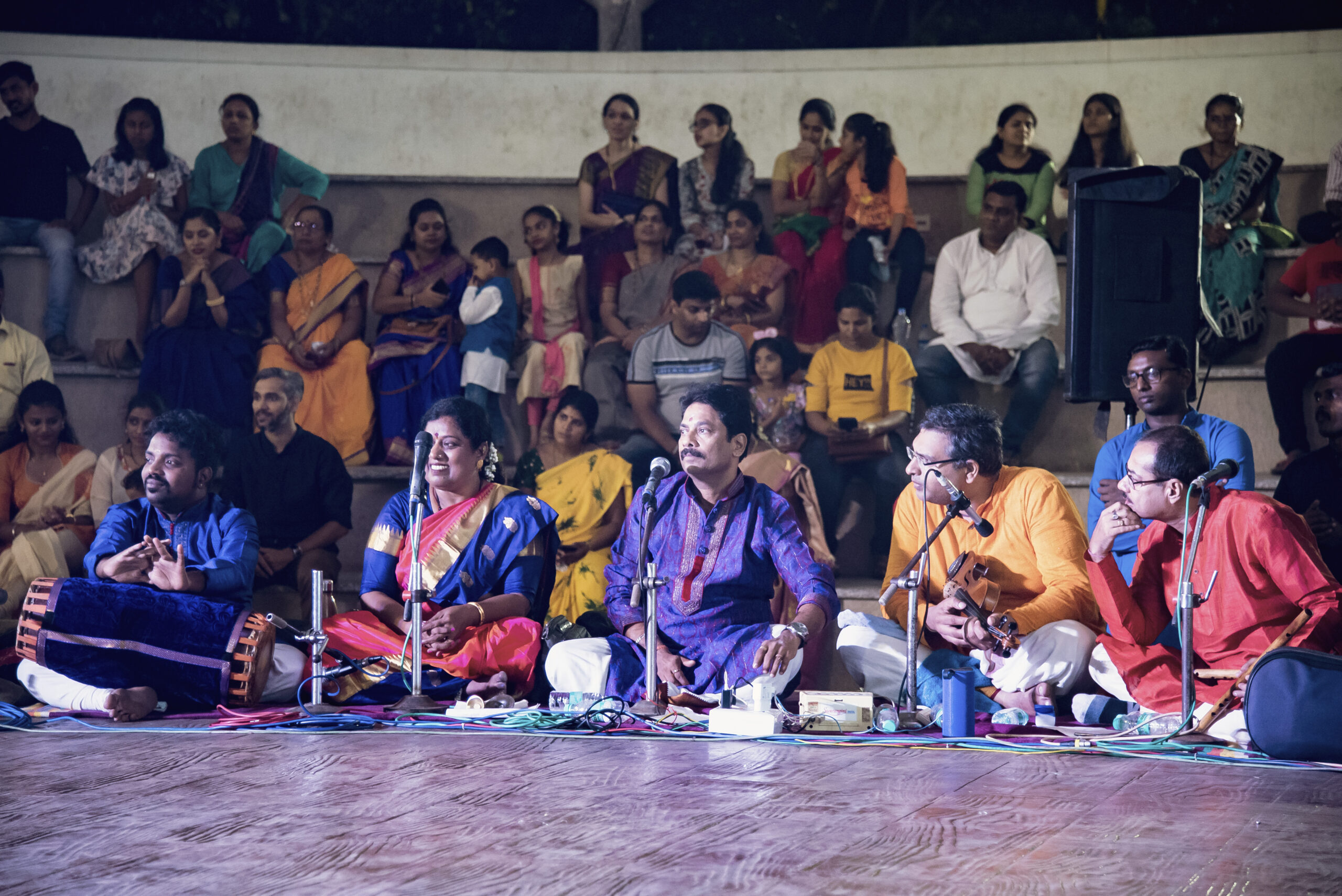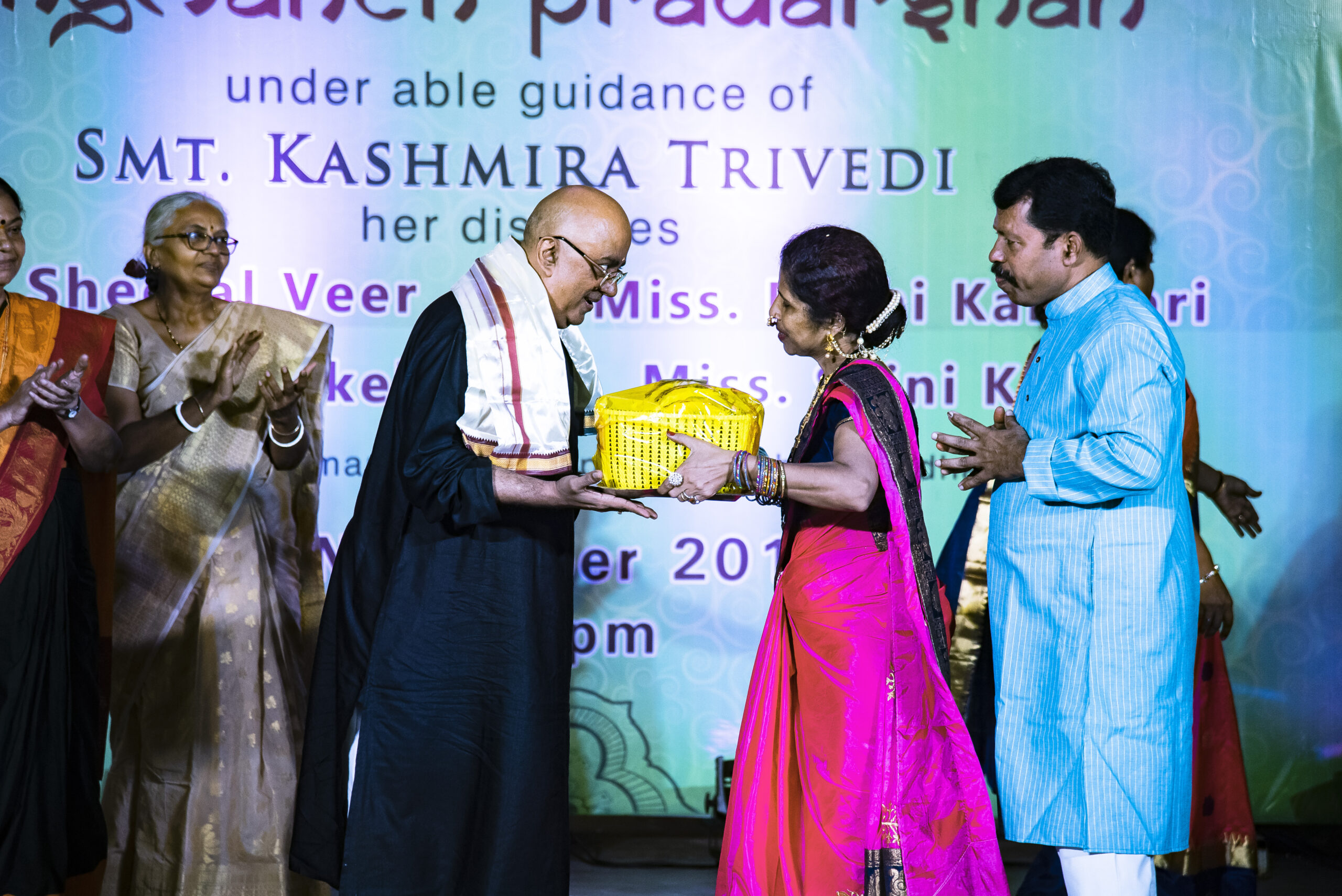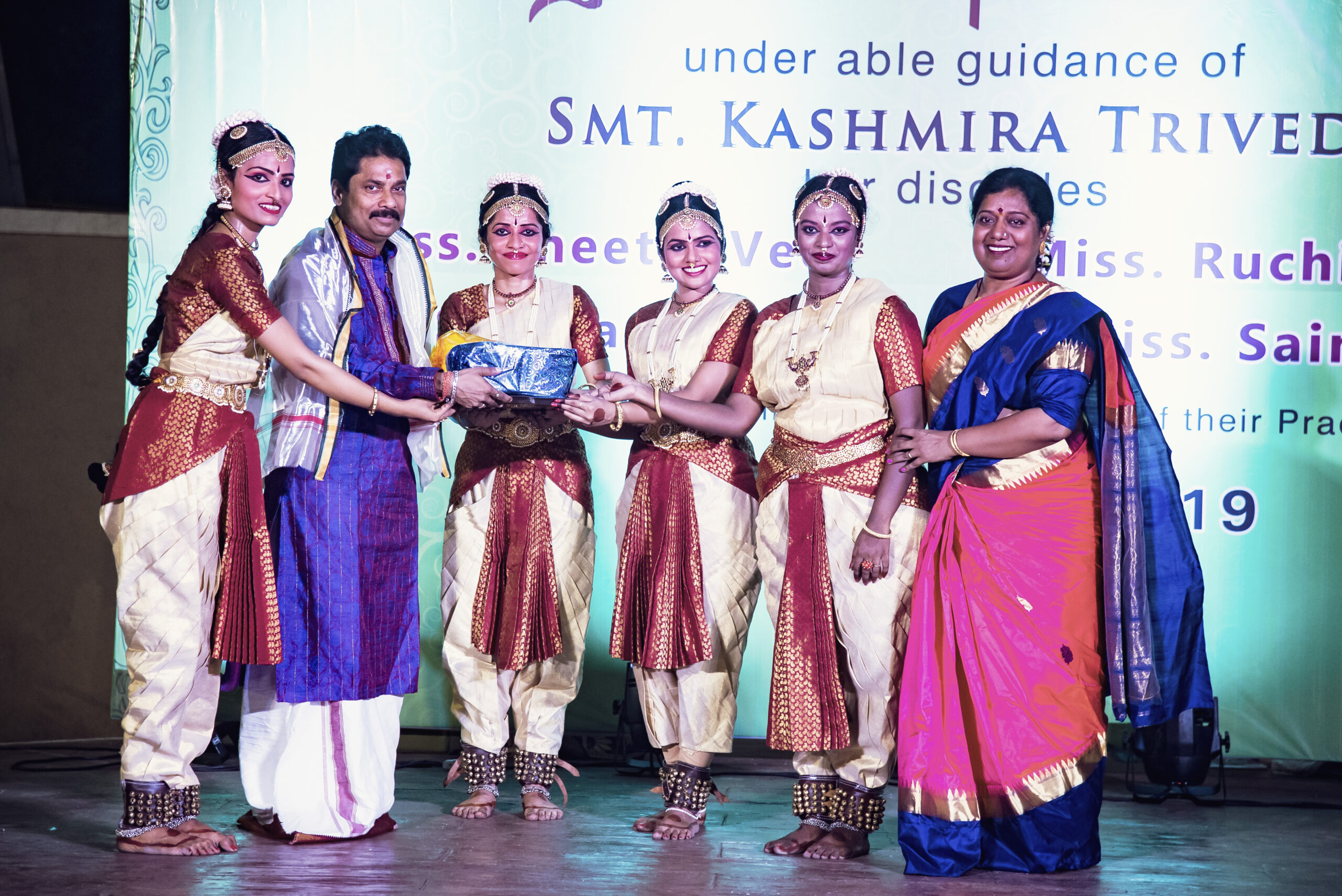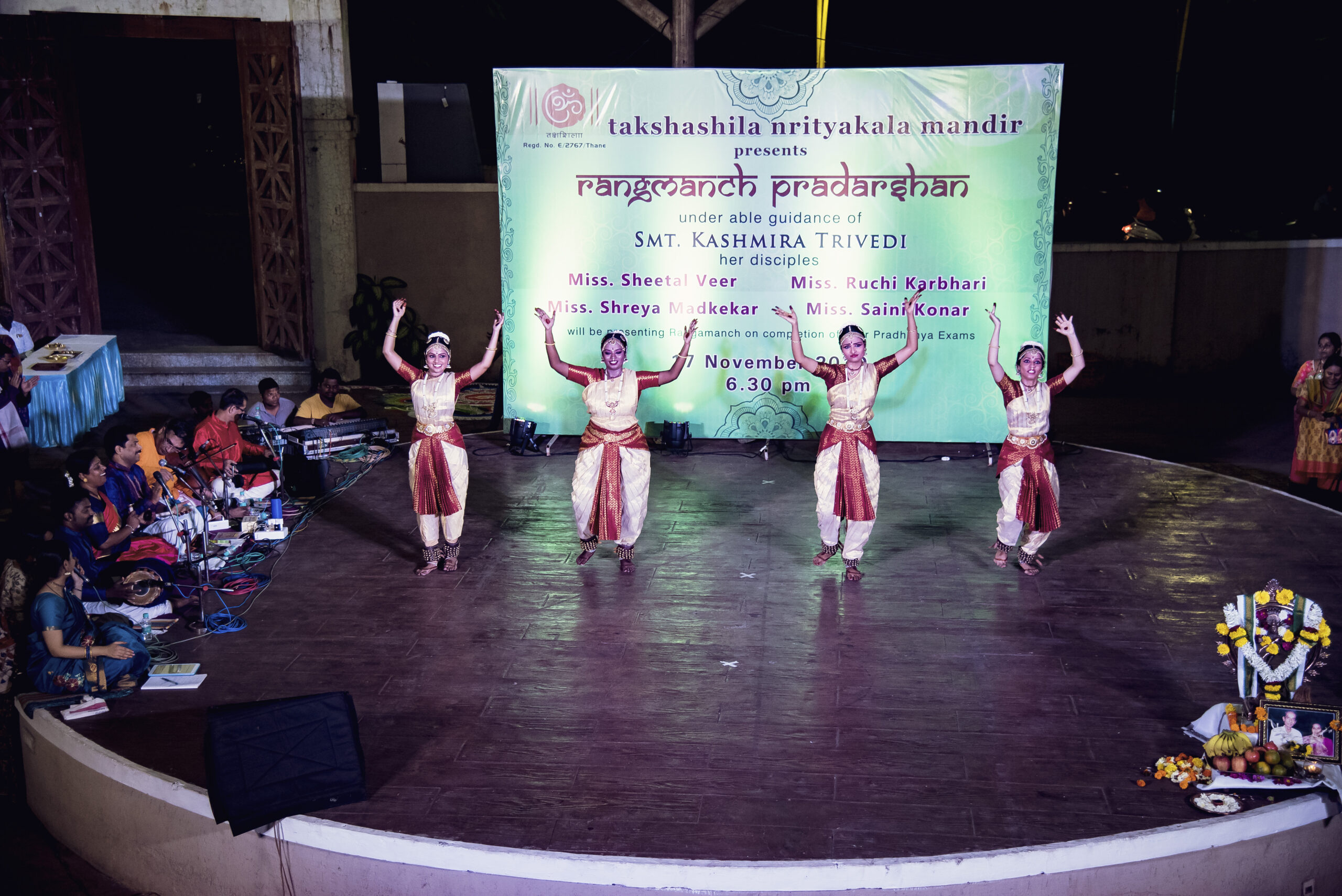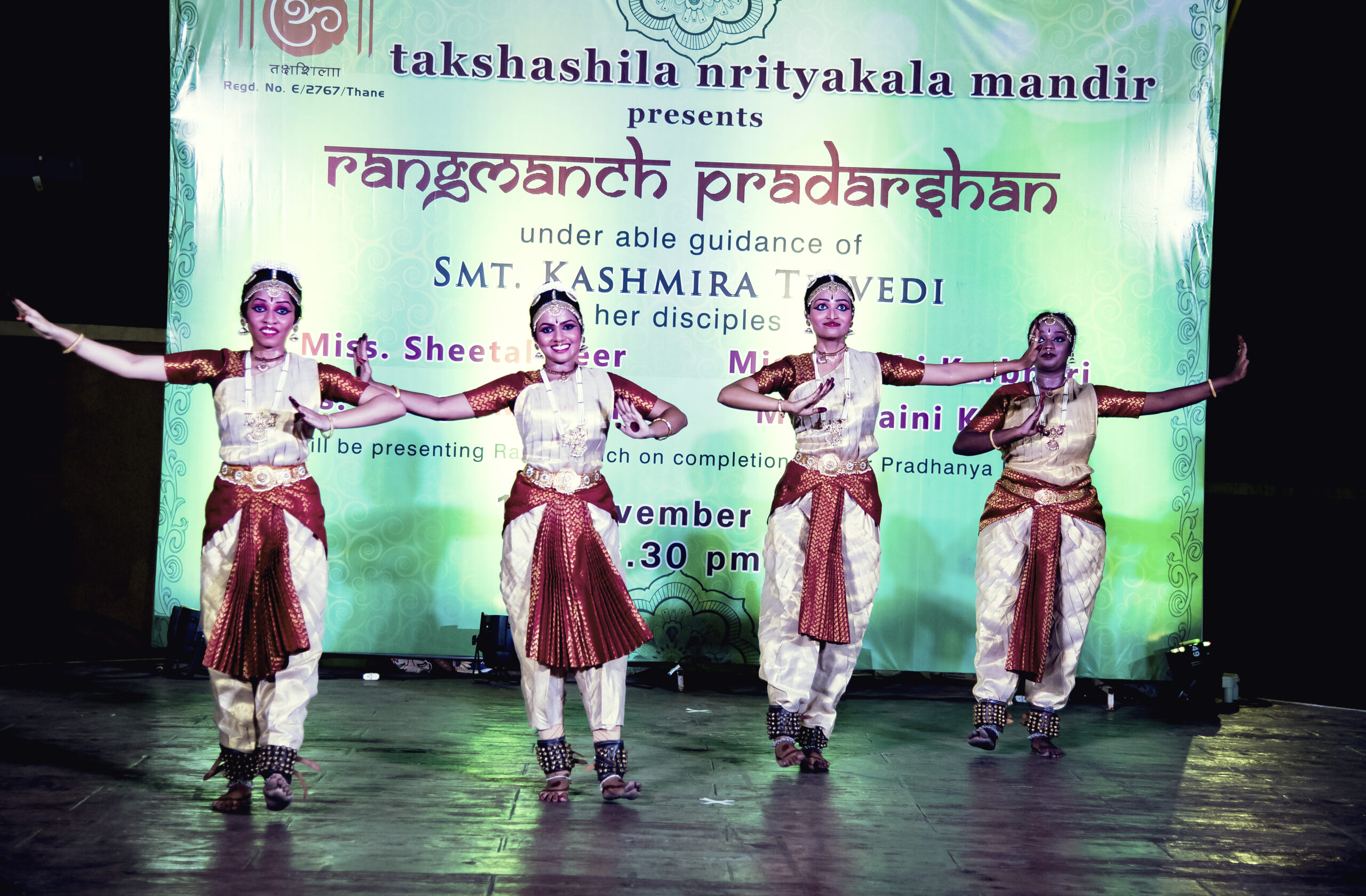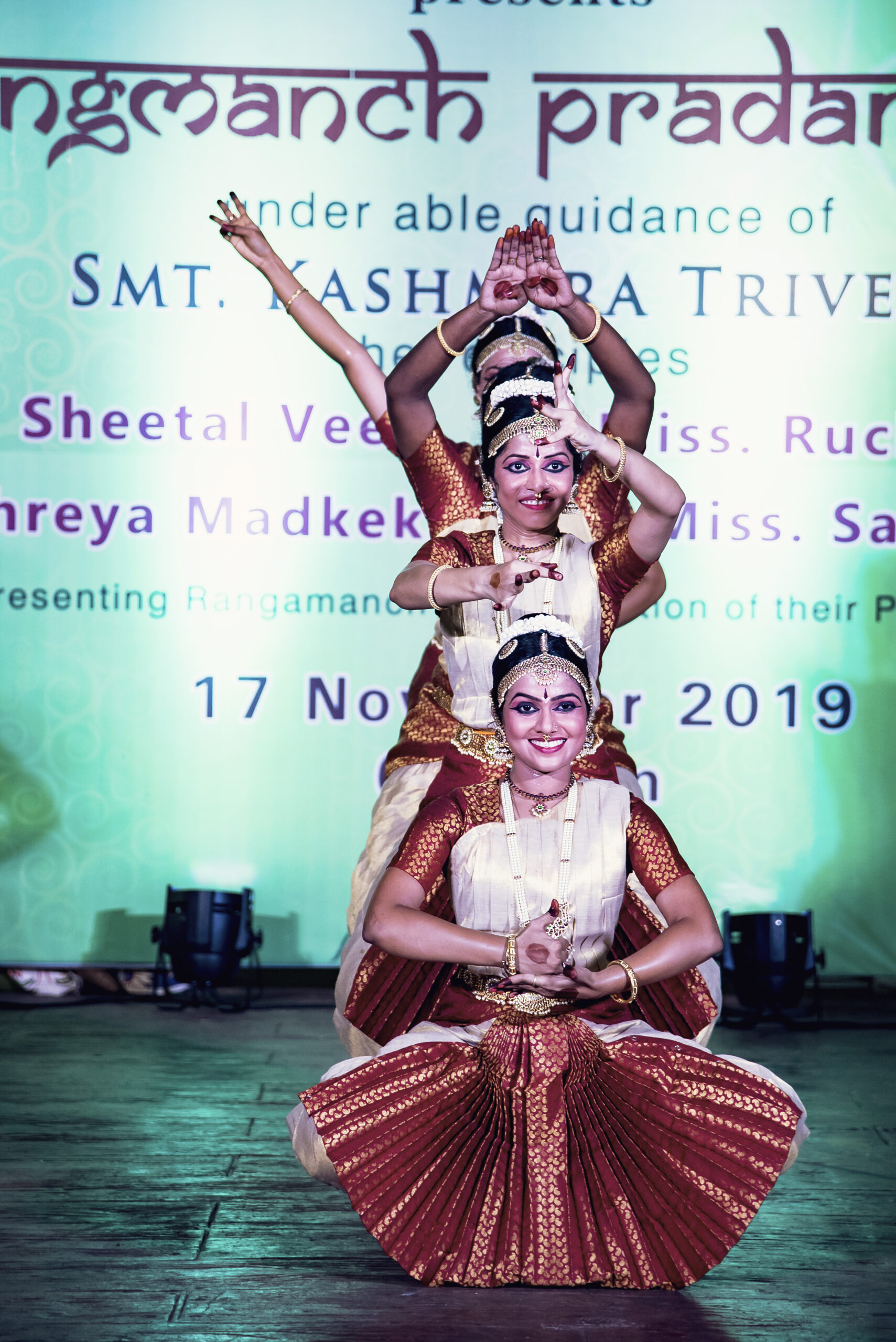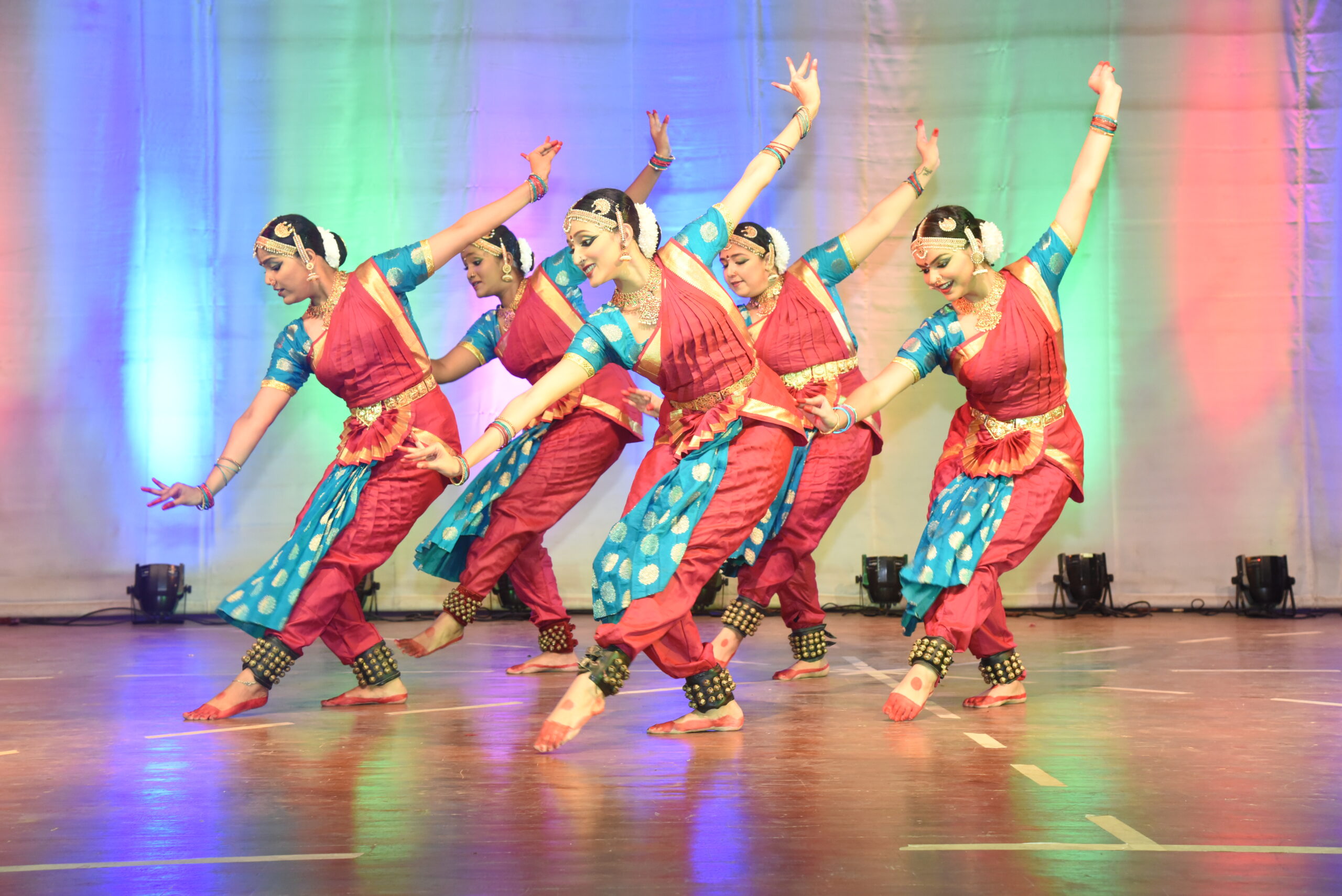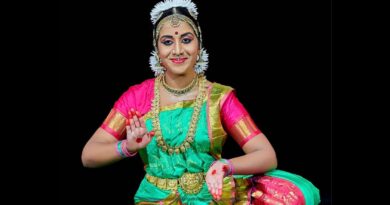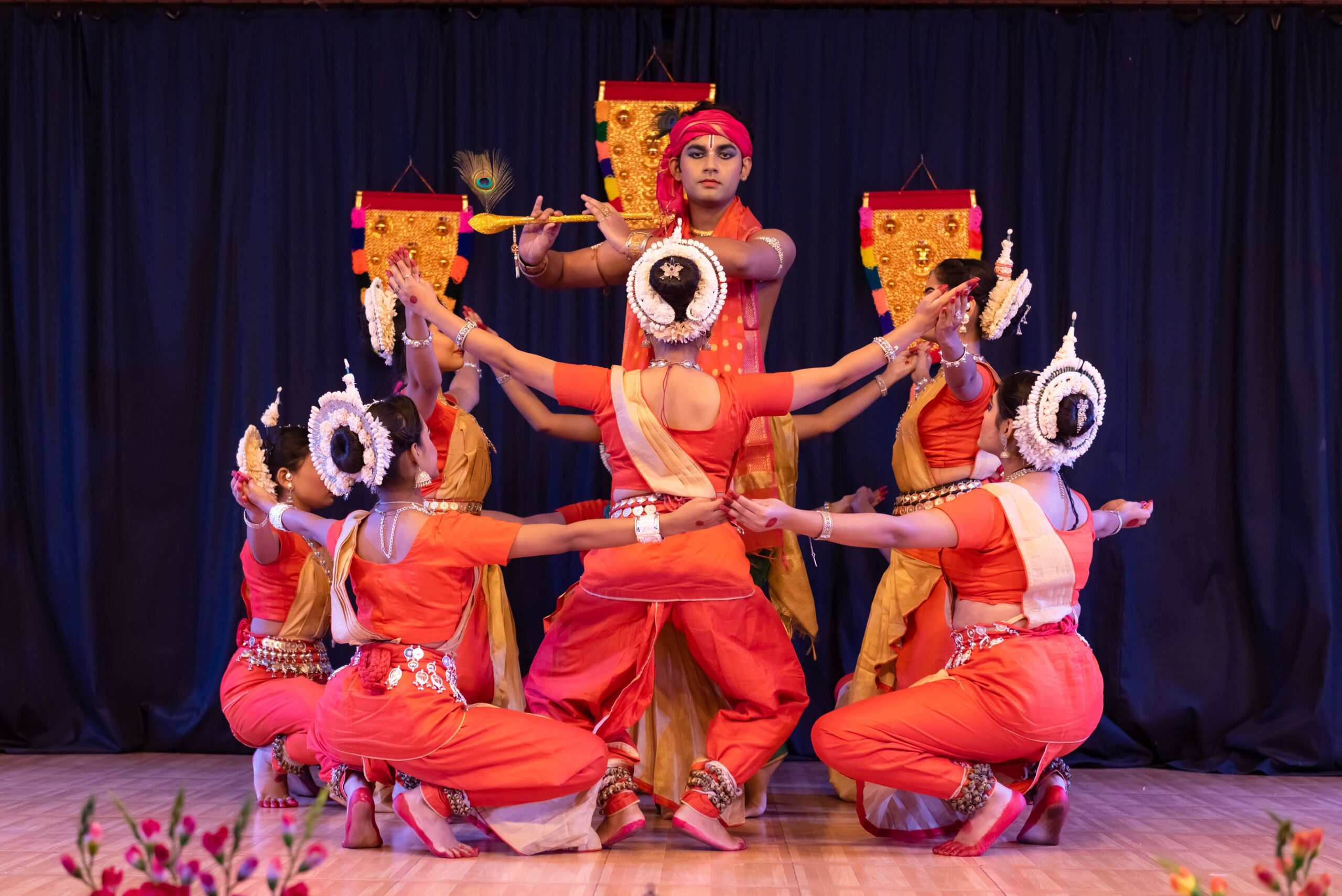Rangmanch Pradarshan of Shital, Ruchi, Shreya and Saini
Text By : Paul Nicodemus
Students of takshashila nrityakala mandir and disciples of Kashmira Trivedi, founder of takshashila nrityakala mandir – Shital Veer, Ruchi Karbhari, Shreya Madkekar and Saini Konar — presented Rangmanch Pradarshan under the guidance of their teacher. They held it at Amphitheatre, Upvan, Thane, Maharashtra on November 17.
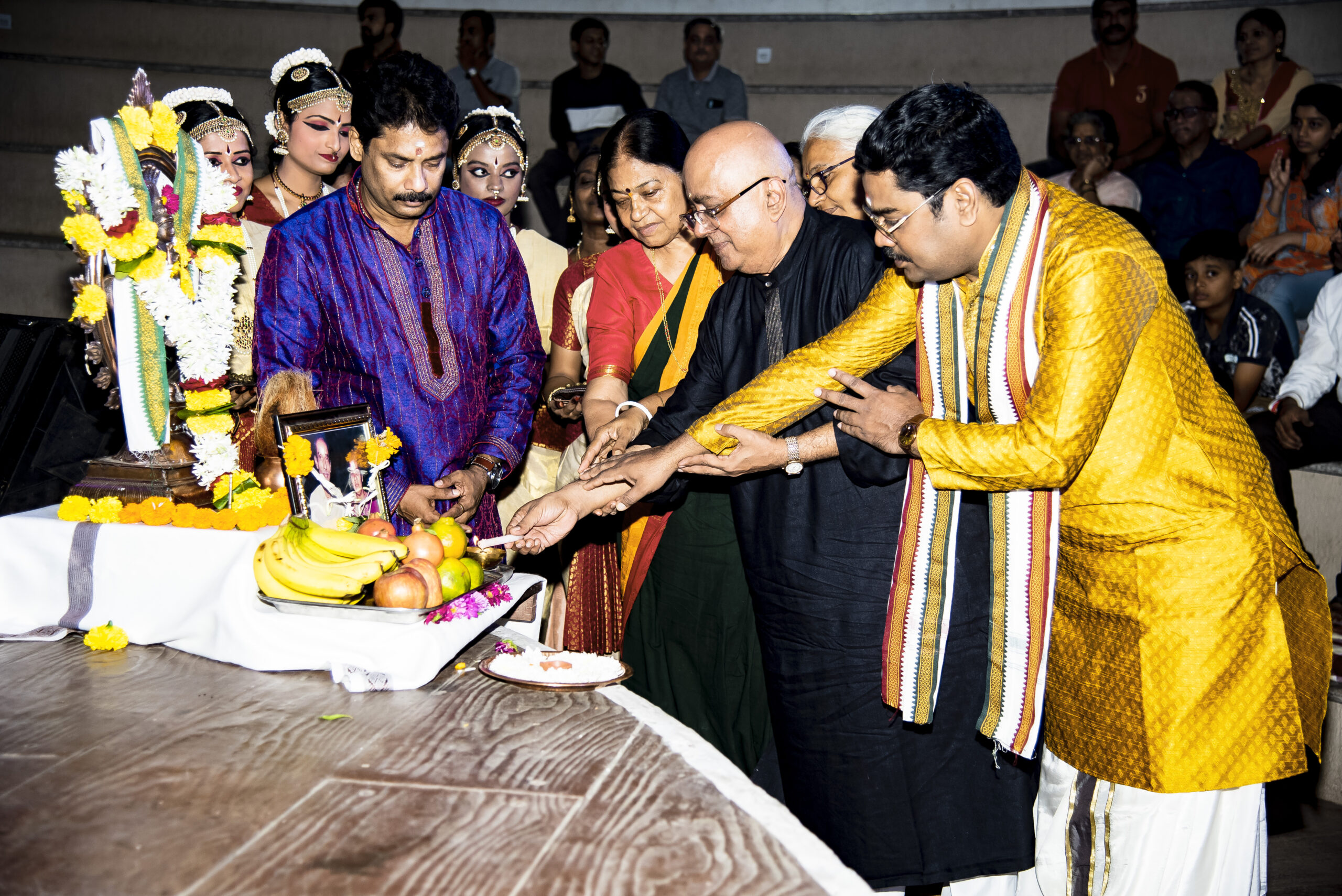
This Rangmanch Pradarshan was graced by Guru Deepak Mazumdar, Sangeet Natak Akademi recipient and Bharatanatyam exponent, BR Vikram Kumar, a well-known Kuchipudi artiste, choreographer and editor of The Dance India magazine, Guru Sumitra Rajguru, a BFA from Nalanda Nrityakala Mahavidyalaya, MA from Mumbai University and serving the Indian Classical Dance tradition since 1974 through her school Nritya Pravesh, and Chetna Shukla, M.Com, M.Phil. in Industrial Relations, teaching at Mumbai University for 38 years at UG and PG level and attached to NGO for the last 10 years for social work. All these four eminent personalities graced the Rangmanch Pradarshan and blessed the four students to have a bright future in classical dance.
The programme opened with the traditional lamp lighting ceremony. All four disciples received ghungroos from their teacher. They began their presentation with a small shloka on Ganesha followed by Mallari which is the procession of Lord. After the introduction, these students felicitated gathered gurus and guests with a small token of love and respect. As the evening progressed, the quartet presented the traditional Kriti of Bharatanatyam Margam, Alarippu in Tisra Ekam Tala and Raga Nattai. It was followed by Jatiswaram set in Vasanta ragam and Rupakam talam. After the energetic performance, Ruchi Karbhari and Saini Konar shared their journey from their first lessons in the dance class till the Rangmanch Pradarshan.
The next rendition was ‘Bho Shambho’ set in Adi talam and ragam Revathi. During this presentation, the audience experienced a beautiful blend of rhythm and karnas. Later, the quartet presented Varnam written by Swathi Thirunal in Hindi which says ‘Bansiwale Ne Mann Moha, Boli Bole Mithi Lage, Dar Dar Umang Karave’ meaning Krishna is playing his flute which sounds so nice that it hypnotises all the Gopis. The four disciples showcased the situation of Gopis after listening to the flute and how they blindly ran after the sound in search of Krishna. They also presented a ball game and Raas Leela in their repertoire. The Varnam was set in talam Adi and ragam Ragamalika.
The four disciples honored the wonderful orchestra which accompanied this Rangmanch Pradarshan. It was because of them the quartet danced so soulfully on rhythm and song. The music was melodious and riveting and added new dimensions to the evening. Shivaprasad on vocals, Mumbai Dakshinamurthy on mridangam, Satish Sheshadri on violin and Atul Sharma on flute mesmerised everyone. After honouring the orchestra, the quartet honored all the technical members – cinematographer, photographer, sound man and the light man who were equally important for the success of the program. Shital Veer and Shreya Madkekar shared their journey to Rangmanch. During their address, they mentioned about the great contribution of Kashmira Trivedi, who was solely responsible for the success of their Rangmanch Pradarshan. They also acknowledged the contribution of senior students who helped them throughout their journey. BR Vikram Kumar presented a small token of appreciation to all the four disciples in the form of a Certificate by The Dance India magazine. It was a huge compliment and encouragement to the young artistes.
After this felicitation programme, Shital, Ruchi and Shreya presented Mahishasura Mardini Shlokam. In this they presented the power of goddess Durga and her different incarnations. The quartet concluded their performance with a Tillana followed by a Marathi Aarti, Ghalin Lotangan and concluded the presentation with a Mangalam. It was a different and beautiful concept introduced for the first time by Kashmira Trivedi.
